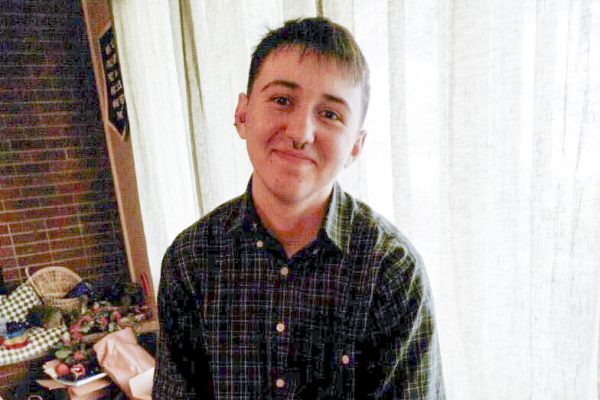LGBTQ safe zone training offered to WSU students, staff
Safe zone LGBTQ training, hosted twice each semester by the Office of Diversity and Inclusion, aims to create a “welcoming and inclusive” environment for the LGBTQ campus community at Wichita State.
Human Resources and the Counseling and Testing Center serve as sponsors for the training.
“It’s important for us all to come together to provide a safe space here on campus for our LGBT students, faculty, and staff,” said Meladee Garst, a psychologist at the counseling and testing center.
“That’s what’s really neat about our program is that we allow our students to also participate in this training,” Garst said. “It offers some unique reflections and perspectives, as well as our faculty and staff with us today.
Garst said that the mission of the Safe Zone program is “to provide safe spaces which are highly visible and easily identifiable where LGBT persons can find support and where bigotry and discrimination is not tolerated.”
Garst serves as a facilitator of the Safe Zone Training sessions, alongside Shocker Hall Residence Life coordinator Matthew Carpenter.
Carpenter said that his department requires that all staff attend safe zone training in the summertime.
Garst and Carpenter led a discussion over a range of topics like inclusive language and LGBTQ-specific terminology, the “coming out” process, heterosexual privilege, and alliance to the LGBTQ community.
Participants were encouraged to ask questions, participate in activities, provide feedback, and share personal stories without fear of judgment.
“The more discussion and dialogue, the better,” Garst said. “Because sometimes, that’s where we learn the most is through conversation and hearing people’s own stories and experiences.”
Upon completing the training, attendees are encouraged to sign a form that promises alliance with the LGBTQ communities at WSU, and condemns bigotry against them.
Those who sign the ally form are given a plaque that Garst said represented a visible safe space on campus.
The next safe zone training session of the semester will be held at 2:30 p.m. April 10th in the Rhatigan Student Center room 265. Attendees must register for the session online.
Brad Thomison, LGBTQ coordinator at the Office of Diversity and Inclusion, said that the office plans to host shorter and more frequent training events every semester starting next semester.
“These events allow for conversations that might not happen otherwise,” Thomison said. “The more we know about ourselves and others, the more equipped we will be to treat each other with care and respect.”
Garst said that nearly five years ago, Human Resources and the Office of Diversity and Inclusion sponsored one training session per semester, until it was “revamped” by the Counseling and Testing Center.
Since then, Garst said that the safe zone training has been offered twice a semester, along with separate gender diversity sessions.
Garst said that as students “come out” at an earlier age, it has become increasingly important to be educated about their identities.
“It’s important for people to be sensitive to those around them,” she said. “It’s vital to be aware of their potential needs.”

Daniel Caudill is the former editor in chief for The Sunflower. A staffer at the paper since 2017, Caudill first covered Student Government Association...

















